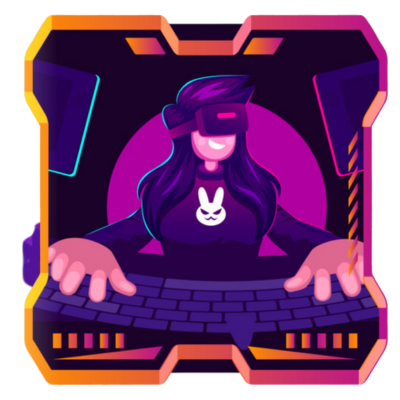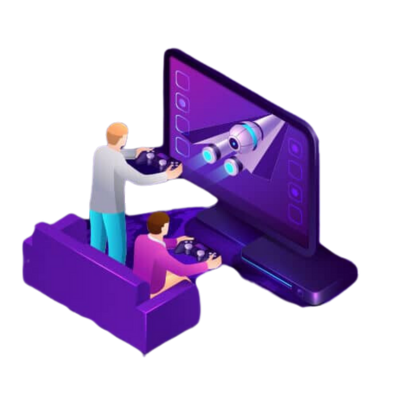Introduction
As the world of gaming evolves, something fascinating is unfolding. Players no longer just game for the thrill—they’re beginning to find real-world value in their virtual endeavors. This shift is powered by an emerging trend: converting in-game coins into cryptocurrency development. What used to be just a score or a collection of tokens for bragging rights is now transforming into assets with monetary value. But, like any trend in the digital space, it comes with its fair share of promise and peril.
Let’s dive into the pros and cons of this concept, peeling back the layers to understand what it means for gamers, developers, and the gaming industry at large.

The Basics: What Are We Talking About?
Before exploring the benefits and risks, let’s establish what we mean.
1. In-Game Coins: Digital Treasures or Mere Pixels?
In-game coins are virtual currencies that exist solely within the boundaries of a game. They can be earned by completing quests, winning battles, or achieving milestones. Players often use them to buy in-game assets like skins, upgrades, or new characters. They’re valuable within the game—but traditionally, their worth ends there.
2. Cryptocurrency: The Digital Gold Rush
Cryptocurrency, on the other hand, is a form of digital money that operates on a technology called blockchain. It’s decentralized—meaning no central authority controls it—and it can be exchanged for real-world goods and services. Bitcoin, Ethereum, and countless other “coins” have surged in popularity, transforming the way we think about value in the digital age.
3. The Fusion: Converting In-Game Coins to Cryptocurrency
The idea is to allow players to exchange their hard-earned in-game coins for actual cryptocurrency, thereby blurring the lines between the virtual and the real world. This isn’t just about making games more rewarding—it’s about changing the game economy itself. Often, this process involves using smart contracts for seamless transactions, which is where a smart contract development company might come into play, ensuring the exchange is secure and automated.
The Pros: Why This Could Be a Game-Changer
Let’s first look at the potential upside. There are several compelling reasons why converting in-game coins to cryptocurrency is more than just a novel idea.
1. Tangible Rewards for Players
Imagine the countless hours players spend leveling up, grinding, and completing missions—what if that time could translate into real financial rewards? Converting in-game currency into cryptocurrency can turn what used to be a leisure activity into a potentially lucrative side hustle. Players could cash out their virtual assets for crypto and eventually, real-world currency. This is where partnering with a crypto exchange development company becomes crucial, as they provide the necessary infrastructure for seamless trading and liquidity.
2. Boosts Player Engagement Like Never Before
When there’s real money on the line, people tend to pay attention. The prospect of earning cryptocurrency can take player motivation to new heights. Games that allow currency conversion could see spikes in user engagement, longer play sessions, and even attract new players seeking not just entertainment, but economic opportunity. With the help of Web3 game development services, developers can integrate these features while maintaining the game’s core mechanics.
3. New Revenue Streams for Game Developers
For game creators, this trend opens up new ways to monetize. Developers could charge fees for converting in-game coins to crypto or implement transaction-based revenue models. It’s not just about making a game fun—it’s about creating an entire economy that lives within the game and extends beyond it. A game development company that specializes in blockchain can help bridge the gap between traditional gaming and this new economic model.
4. Promotes Ownership in the Digital Age
When players can own and convert their in-game assets, they gain a level of digital ownership that traditional gaming models just don’t offer. This aligns perfectly with the principles of Web3, where decentralization and user control reign supreme. Players don’t just rent digital items from game companies—they own them, just like a collector owns rare artwork. Through token development, game assets can become unique digital properties with true ownership rights.
5. A Step Toward Interconnected Gaming Universes
Cryptocurrency can act as a bridge across multiple games and platforms. Picture this: a sword earned in one game could have value in another, or the cryptocurrency acquired through a racing game could be used to buy an avatar for a fantasy RPG. It’s not just about breaking down barriers between game worlds; it’s about creating a new, interconnected digital economy, where Web3 game development services enable seamless experiences.
6. Accelerates Blockchain and Crypto Adoption
Introducing cryptocurrencies to gamers, who are already tech-savvy, could accelerate the widespread adoption of blockchain technology. Players, particularly the younger crowd, might become more comfortable using crypto in other areas of their lives. The gaming world could very well be the doorway that brings decentralized finance (DeFi) into mainstream culture, supported by solutions like crypto wallet development for secure asset management.
The Cons: Why It’s Not All Fun and Games
For all the excitement around the concept, it’s important to tread carefully. There are significant downsides that could undermine the entire idea if not managed properly.
1. Navigating Regulatory Minefields
The world of cryptocurrency is still very much the Wild West when it comes to regulation. Different countries have different rules, and converting in-game coins to crypto could put developers in murky legal waters. Are these conversions taxable events? What happens when a country bans cryptocurrency transactions?
2. High Volatility Equals High Risk
Cryptocurrency is notorious for its roller-coaster price swings. One day, a coin is soaring to record highs, and the next, it’s plummeting in value. Tying in-game currency to such volatile assets could expose players to risks they didn’t sign up for. Imagine earning in-game coins for weeks, only to convert them to crypto just as the market takes a nosedive.
3. Security Issues Loom Large
Blockchain may be highly secure in principle, but that doesn’t mean the ecosystem is free from danger. Wallets can be hacked, phishing schemes abound, and private keys can be lost forever. Introducing players to the world of crypto also introduces them to these risks. Game developers will need to ensure that their platforms are as secure as possible—or face backlash when things go wrong. This is where a smart contract development company can help by building secure and automated systems for transactions.
4. Could It Break the Game?
Balancing a game economy is already a delicate act. Adding real-world financial incentives could tip the scales and disrupt gameplay. Suddenly, the game isn’t just about fun anymore—it’s about making money. This shift could lead to “pay-to-win” mechanics, where those with deeper pockets dominate the game, leaving less affluent players at a disadvantage. The joy of gaming could be overshadowed by financial motives.
5. Tax Complications for Players
If players can convert in-game coins to cryptocurrency, they may also face tax liabilities. Many countries treat cryptocurrency as a taxable asset, and players could be required to report their gaming earnings as income. What was once a carefree activity could become a financial headache, with tax forms to fill out and accounting to be done.
6. Not Everyone’s a Tech Guru
For casual gamers, converting in-game currency to crypto may seem overly complicated. The world of wallets, exchanges, and blockchain can be intimidating for newcomers. Developers may risk alienating a portion of their audience if they don’t find ways to make the process accessible and straightforward. Partnering with a crypto exchange development company could simplify the conversion process, ensuring a smoother experience for players.
Start earning while you game today!
Our team of expert is on hand to assist you

How This Could Reshape the Gaming Industry?
The potential to convert in-game coins to cryptocurrency isn’t just a small change—it could disrupt the entire gaming landscape.
1. The Evolution of Digital Economies
Games would no longer be contained, self-referential worlds; they could become gateways to broader, real-world economic systems. Play-to-earn models could become the norm, transforming what it means to “make a living” as a gamer. But this evolution won’t come without its challenges—regulating these new digital economies will be a complex task.
2.A New Breed of Games and Business Models
With the advent of crypto integration, developers could start designing games specifically around earning and asset ownership. This shift might even foster the creation of decentralized gaming platforms where the community—not a central company—controls the economic rules. Could we see a future where players don’t just play games, but own pieces of them?
3. Ethical Dilemmas and Shifting Game Design
The line between gaming for fun and gaming for profit could blur. Is it ethical to promote a game where players could lose real money if the market crashes? Should developers be responsible for educating players about financial risks? These are questions the industry will need to answer as it navigates this brave new world.
4. Disruption of Traditional Gaming Companies
Established gaming giants may find themselves disrupted by smaller, more agile developers leveraging blockchain. Indie studios, unhindered by legacy systems, might be the ones leading the charge in this new economy. The traditional revenue models of big companies could be upended by games with entirely new economic frameworks.
Real-World Examples and Use Cases
The concept isn’t entirely hypothetical. Here’s where the lines between gaming and cryptocurrency are already starting to blur:
1. Axie Infinity: Play-to-Earn Pioneer
Axie Infinity allows players to earn cryptocurrency by breeding, battling, and trading digital pets known as Axies. With in-game tokens that can be traded for real-world value, Axie Infinity has popularized the play-to-earn model, but not without facing issues of sustainability and market saturation.
2. Decentraland: Building Virtual Economies
In Decentraland, a virtual world built on the blockchain, players can buy and sell virtual land using cryptocurrency. The game’s economy revolves around the token MANA, which is not just an in-game currency but also a tradable asset on various exchanges.
3. Sandbox: Ownership and Monetization Meet Gaming
Sandbox lets players create, own, and monetize their own gaming experiences. The in-game currency, SAND, can be converted into other cryptocurrencies, giving creators the ability to earn real money. Yet, this also introduces the speculative nature of crypto into the gaming world.
Where Do We Go from Here?
The road ahead is full of twists and turns.
1. Blending DeFi with Gaming
DeFi elements could soon become commonplace in gaming, with features like staking, lending, and even yield farming. The integration could expand the ways players earn rewards, creating hybrid financial-gaming experiences.
2. The Metaverse Awaits
As the metaverse concept grows, digital and real-world economies will become increasingly interwoven. The ability to convert in-game coins to cryptocurrency will be a key feature in shaping these interconnected virtual worlds.
3. Regulatory Tightening Is Inevitable
With increasing interest comes increasing scrutiny. Governments will likely introduce more regulations to oversee the conversion of in-game assets to cryptocurrency, ensuring consumer protection and fair practices.

Conclusion: A Brave New (Virtual) World
The idea of converting in-game coins to cryptocurrency carries tremendous potential. It could revolutionize gaming, create new opportunities, and blur the boundaries between digital and real-world economies. Yet, the risks—ranging from regulatory uncertainty to financial pitfalls—are just as significant.
As the gaming industry moves forward, careful consideration and a balanced approach will be essential. Whether this trend becomes a passing phase or a permanent fixture remains to be seen. But one thing’s certain: the game is changing, and it’s changing fast.



